| Srl | Item |
| 1 |
ID:
094544


|
|
|
| 2 |
ID:
085544
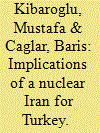

|
|
|
| 3 |
ID:
094122
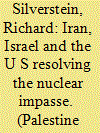

|
|
|
| 4 |
ID:
093575
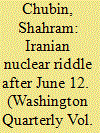

|
|
|
| 5 |
ID:
094117
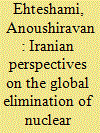

|
|
|
| 6 |
ID:
094116
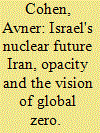

|
|
|
| 7 |
ID:
093836
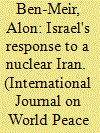

|
|
|
| 8 |
ID:
103804
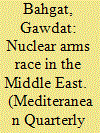

|
|
|
|
|
| Publication |
2011.
|
| Summary/Abstract |
Since the early 2000s Iran's nuclear program has been a major focus of international and regional policy. Many policy makers and scholars have expressed their concern that if Iran "goes nuclear" other Middle Eastern countries, particularly Egypt, Saudi Arabia, and Turkey, will follow suit. This author argues against this conventional wisdom. As a NATO member, Turkey is a special case. The analysis suggests that security is the main reason why countries pursue nuclear weapons. Egypt and Saudi Arabia (along with other Arab countries) have learned how to live with a perceived nuclear Israel. Iran with a nuclear capability, if it happens, would not pose a security threat to either Cairo or Riyadh. In short, the author argues that an Iran with nuclear capability will further destabilize the Middle East and will be a negative development, but it is not likely to make Egypt and Saudi Arabia "go nuclear."
|
|
|
|
|
|
|
|
|
|
|
|
|
|
|
|
| 9 |
ID:
096910
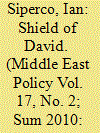

|
|
|
| 10 |
ID:
084061
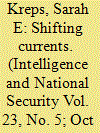

|
|
|
|
|
| Publication |
2008.
|
| Summary/Abstract |
Lost in the political fallout of the Iran National Intelligence Estimate (NIE) of 2007 was any discussion about historical parallels and what those might say about intersection between intelligence, policy, and politics. This article argues that the NIEs on the ballistic missile threat of the 1990s offer a useful analogy. In a short period of time, the NIE's assessment of the threat from so-called 'rogue states' went from modest to non-existent, provoking charges of politicization, eliciting investigations, and pausing the US missile defense program. A similar sequence of events followed the NIEs on Iran, whose tenor appeared to shift from alarmist in 2005 to dismissive in 2007. If the experience of the ballistic missile NIEs is any guide, then it is not clear that the 'cure'- investigations and commissions - are better than the disease. Both cases illustrate the need for the intelligence community to remain detached but not unaware of the policy environment into which these estimates are introduced. They also reaffirm that estimates are just estimates, probabilistic rather than deterministic judgments about future events.
|
|
|
|
|
|
|
|
|
|
|
|
|
|
|
|
| 11 |
ID:
096905
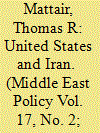

|
|
|